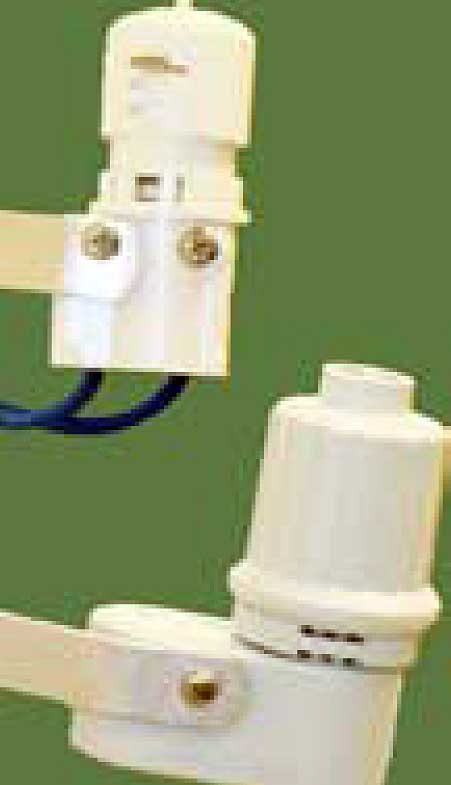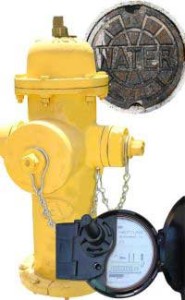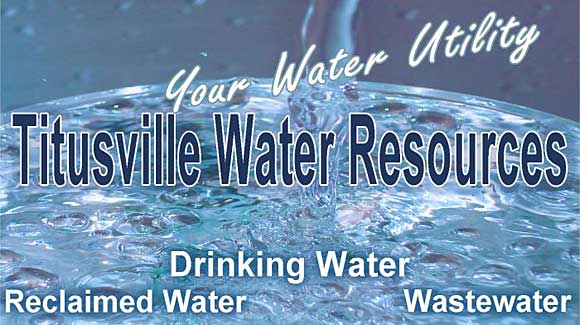City of Titusville Water Conservation Program Helps You Control Your Irrigation System
By Maureen Phillips, Water Conservation & Public Outreach Manager, City of Titusville Water Resources // July 1, 2016
follow four simple steps
ABOVE VIDEO: Save water and money by using efficient nozzles in your sprinkler system.
BREVARD COUNTY • TITUSVILLE, FLORIDA – Are you one of the millions of Floridians that have an in-ground irrigation system? Do you know when it comes on and when it turns off? Do you know how much water it is putting out in each zone? It’s estimated that over fifty percent of all homeowners over-water their yards.
Are you one of them?
The City of Titusville Water Resources Conservation Program can help you take control of your irrigation system. By following four simple steps, you will increase your irrigation system’s efficiency, reduce your water use and improve the health of your yard.
• First, you need to find out when your system is operating.
During Daylight Saving Time, Titusville residents are limited to a twice-a-week irrigation schedule. You can find which days you are allowed irrigate by clicking on the “Do You Know Your Days” image on the Titusville local news page or going to the Water Resources Conservation pages at Titusville.com.

Check to make sure your controller reflects the correct days. Some controllers will reset their programs every time the electricity flickers or goes out. The irrigation restrictions apply whether you use well water, city water, or reclaimed water.
While you are checking the schedule on your controller, make sure you check to see that your system’s rain sensor is working. A rain sensor will keep your sprinklers from running when its raining or immediately after a rain.
• Now that you know when you are watering, it’s time to find out what you are watering.
Take a walk around your yard while your irrigation system is running. Check for broken or misdirected sprinklers.
If you are watering the sidewalk instead of your lawn, you are wasting both water and time. If there are any broken sprinkler heads, replace them. A broken sprinkler head not only means that part of your yard will be too dry, but that another part will be too wet. Too much water is as bad as too little, drowning plants and introducing disease and fungus to your lawn.
• Next, you need take a close look at how your system delivers water to your yard.

The sprinkler head that works for large open areas should not be used for plant beds. If you have the spray angled in too large arc, a large portion of your water is lost to evaporation and will never reach your lawn. For plant beds, consider micro-irrigation heads or drip irrigation.
All the sprinklers heads in the same zone should match. Mismatched and inappropriate sprinkler heads lead to dead spots and overspray.
• The final step in your irrigation system check-up is to look at just what you are watering.
One of the most common mistakes homeowners make is that they water turf (a high-water user) at the same time as watering plants (a lower-water user). Know how much water your plants require. Group plants with like watering needs and then include them in the same zone.
You can also significantly reduce how much water you need in your yard by increasing your use of woody plants and plant beds and reducing turf areas.
If you include native plants and ground covers in your landscape, you may be able to completely eliminate the need for any irrigation.

Take the time to learn about your irrigation system. Your efforts will be rewarded with reduced water use, reduced electrical costs, reduced runoff, reduced fertilizer use and improved lawn health.
City of Titusville Water Resources Conservation Programs
Water conservation goes beyond just saving water. It also focuses on using water efficiently and protecting our water resources.
The City of Titusville Water Resources Conservation Program is dedicated to educating Titusville water consumers on ways to conserve water.
The City of Titusville Water Resources Conservation programs include the Toilet Retrofit Rebate Program, a year-round showerhead exchange, the Bag It! Trash It! Dog Waste Pickup Program and Florida-friendly landscape education.
They also offer speaker services, educational presentations and facility tours. Conserve water, call the City of Titusville Water Resources Conservation Office at 567-3865.
CLICK HERE FOR MORE INFORMATION












